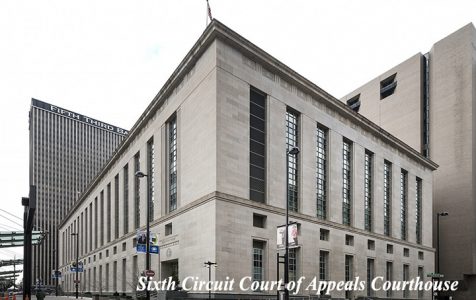In a case with critical constitutional implications for the principles of federalism and state sovereignty, a three-judge panel of the Sixth Circuit Court of Appeals heard oral arguments Tuesday morning on Tennessee’s challenge to the federal refugee resettlement program.
Attorney John Bursch appearing for the Thomas More Law Center, argued on behalf of Tennessee’s General Assembly, while DOJ attorney Samantha Lee Chaifetz argued for the Federal Government. Each side had 15 minutes to present its case. Mr. Bursch took 10 minutes for his initial presentation and reserved 5 minutes for rebuttal.
Both lawyers were peppered with questions by Judge Boggs. By the end, it still remained unclear whether the judges were leaning towards one side or the other.
However, I have linked below to the court-provided audio of the entire oral argument, so you can judge for yourself. Also, separately linked is Mr. Bursch’s 5-minute rebuttal which counters the arguments made by the Federal Government.
Listed below are some salient quotes from Mr. Bursch’s argument to the 3-judge panel:
- “When the Federal Government implements an exclusively federal program, it cannot commandeer state funds to pay for it under a threat that the Federal Government will cut 20% of a state’s budget if it does not comply. That is unconstitutional compulsion.”
- “The Tennessee General Assembly is the institutional plaintiff asserting an institutional injury. It can’t satisfy its State Constitutional obligations under Article 2 Section 24 of the State Constitution to have a balanced state budget because the Federal Government can simply syphon off state funds from the Tennessee general program whenever it wants to by placing more refugees.”
- “The question is whether the Federal Government’s pressure has turned into compulsion or coercion or duress.”
- “The only one telling the Tennessee legislature that it can’t defend its own interest is the Federal Government. The same Federal Government which can yank those 20% of the Medicaid funds, the 20% of the State budget, if we don’t comply.”
- “The language the Supreme Court uses when the Federal Government uses funding mechanisms where pressure turns into compulsion, coercion, pressure, duress that’s when it violates this 10th Amendment federalism principle.”
- “The Assembly members take an oath to uphold state and federal law at the time they go into office and if they would propose a statute with a plan that didn’t result in us paying for this federal program, we would be violating federal law.”
Click here to listen to the entire oral argument
Click here to listen to John Bursch’s 5-minute rebuttal
Richard Thompson, Esq.
President and Chief Counsel
THOMAS MORE LAW CENTER

